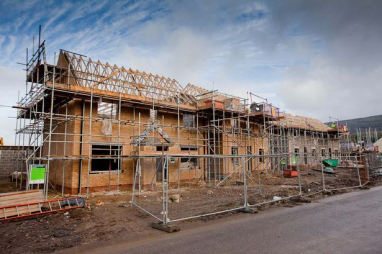- SBD - 600 Mid GS Medium Soft Pink FD8780 , NIKE◆AIR JORDAN 5 RETRO TORO BRAVO 27.5cm RED DD0587 - 116 - NIKE◆AIR JORDAN 5 RETRO TORO BRAVO 27.5cm RED DD0587-600
- 👟 кроссовки adidas streetball cordura адидас / наложка bs👟 — цена 2540 грн в каталоге Кроссовки ✓ Купить мужские вещи по доступной цене на Шафе , adidas Originals Sustainable Stan Smiths Vita sneakers med heltäckande grafiskt mönster , Украина #126359384
- LEGO Air Jordan Flight Fleece Pants , air jordan 1 mid se take flight , IetpShops
- Air Jordan 1 Outlet Store
- 200 Release Date - nike gold air chukka moc high school - SBD - nike gold air yeezy glow in the dark sneakers boys Rattan Obsidian CZ4149
- Air Jordan 1 University Blue 555088 134 Release Date Price 4
- Air Jordan 3 Rust Pink CK9246 600
- nike air force 1 low white gold dc2181 100 release date info
- air jordan xxxv cq4227 004
- air jordan 1 retro high og university blue 555088 134
- Home
- News and analysis
- Info hubs
- Events
- Video
- Case Studies
- About us
- Magazine
- Advertising
Produced for the industry by the Association for Consultancy and Engineering
News
Cautious welcome from construction for chancellor’s budget measures

The chancellor’s budget commitments on R&D, infrastructure, housing, and skills have been given a cautious welcome by the construction and infrastructure industry.
On R&D and the new Transforming Cities Fund, Rachel Skinner, head of development at WSP said: “The chancellor had to deliver for people, places and the infrastructure that binds communities and business together. By committing to make the most of the UK’s innovation potential and recognising prosperity and sustainability really go hand in hand, he showed that Britain has a plan to compete and lead in the global race.
“WSP welcomes the government’s commitment to increasing the share of GDP dedicated to R&D, as well as its commitment to take the driving seat on the future of mobility. The Transforming Cities Fund provides much needed stimulus to regional transport connectivity whether that’s in Tyneside or the West Midlands and a perfect test bed for innovations in mobility. Its commitment to connected and autonomous vehicles provides further momentum to the UK’s leadership on this agenda. For this mobility revolution to get into full gear, we need to embed these technologies into all of our infrastructure planning.”
John Hicks, head of government and public at AECOM, was disappointed that the chancellor failed to mention planned key infrastructure projects in his budget. “Whilst briefly mentioning Crossrail 2, it’s disappointing that the chancellor did not take the opportunity to continue to confirm the government’s commitment to this much-needed infrastructure project, nor did he provide any new news on the expansion of Heathrow Airport,” said Hicks. “There was also a distinct lack of dialogue on defence and the energy sector, where clarity on energy pricing and Hinckley Point C, in particular would have no doubt been welcomed by industry,” he said.
Nick Roberts, Atkins’ chief executive for UK & Europe, said: “Through this budget, the chancellor has put digital and technology at the heart of the British economy, helping maintain our position at the forefront of the technological revolution and providing a solid platform to build future growth.
“From the trials in mobile and digital connectivity on the trans-Pennine route and investment in AI and 5G technology, to the evolution of our road transport from internal combustion to electric to fully autonomous, the government is driving the infrastructure that secures our digitally-enabled future. Furthermore, the acknowledgement that we simply have to invest in providing the country’s workforce with the digital skills needed to make the most of these opportunities is a significant step forward and should be welcomed.
“In addition to digital revolution, the chancellor also recognised the value of traditional infrastructure. The commitments around building more housing, freeing up much-needed land and reforming planning regulations are positive developments, as are ongoing commitments to the big transport projects that connect our great towns, cities, communities and businesses. Underpinning these are further steps towards meaningful devolution which allow local authorities to deliver the local infrastructure projects to meet local needs.”
On housing, Gavin Smart, deputy chief executive at the Chartered Institute of Housing, said: “The renewed commitment to tackle the nation’s housing crisis in today’s budget represents significant progress and we particularly welcome the government’s ambitious new target to deliver 300,000 new homes a year.
“Of course, the important thing is that we are building the right homes in the right places and that people can afford them. We have to make sure that any new funding supports the building of new homes that meet the varied needs of individuals and families across the UK. For many people social rents, which are much cheaper than private rents, remain the only truly affordable option and more must be done to support this crucial form of housing.”
Stuart Minchin, director of buildings at recruitment firm Matchtech, said: “The announcement that the government is planning to build 300,000 new homes a year is a positive result for employment opportunities at all levels within the housing sector. Whilst this is good news for those working within this sector, it will present challenges for construction companies looking to hire in an already skills-short environment.”
Mark Richards, head of projects, energy and infrastructure finance, at lawyers Berwin Leighton Paisner, said: “The chancellor has continued his theme of seeking to boost productivity in the UK, including further investment in the UK’s infrastructure. However, there was much greater emphasis on technology to delivery productivity. There has been a real shift from an economy focused on molecules to one focused on electrons and data: a budget for an Industrial Revolution 4.0.”
“The government’s ambitions on devolution will create genuine excitement for our infrastructure developer and infrastructure investor clients. Given the amounts of £1.7bn committed through the Transforming Cities Fund, investors will be having direct conversations with elected mayoral administrations on exciting municipal transport projects, without the need to speak to Whitehall.”
WSP director Adrian Hames said: “Housing remains this country’s Achilles’ heel. It is unlikely that Britain can be future ready, competitive and productive, unless we provide the next generation of engineers, environmentalists, planners and apprentices with the opportunity to live and work where they chose. It will remain a challenge to deliver 300,000 homes per year, unless we opt for a different approach. As shown by our own experience of working with Transport for the North, HS2, Crossrail and Highways England, a collaborative approach to placemaking which leverages new infrastructure projects leads to better outcomes for communities.”
Mark Robinson, chief executive of the public sector procurement organisation Scape Group, said: “The only way to deliver 300,000 homes a year is to get local authorities and housing associations building as well as the private housebuilders. By lifting the housing revenue account cap in high demand areas, the government has finally begun to give councils better access to finance so that they can borrow to build affordable homes.
“We need a revolution in council housebuilding, and finance is the main stumbling block. If given the right resources and powers, local councils can serve as the engines for housebuilding in their communities.
“The challenge now on housing is how quickly can they be delivered? Once again, the chancellor has also set out ambitious plans for further reform of the planning system and this will put yet more pressure on local authorities to deliver permissions. However, to achieve this they need to be properly resourced and will only succeed if the authorities facing the greatest pressure receive more funding for their planning departments.
“Greater use of modular and offsite housing solutions will be an essential part of increasing output, but there was no mention of this today which is a missed opportunity. New funding for training for the construction sector is a positive step forward and vital for industry capacity, but the £34m earmarked today is unlikely to be enough given the sheer scale of the skills crisis in the industry.”





